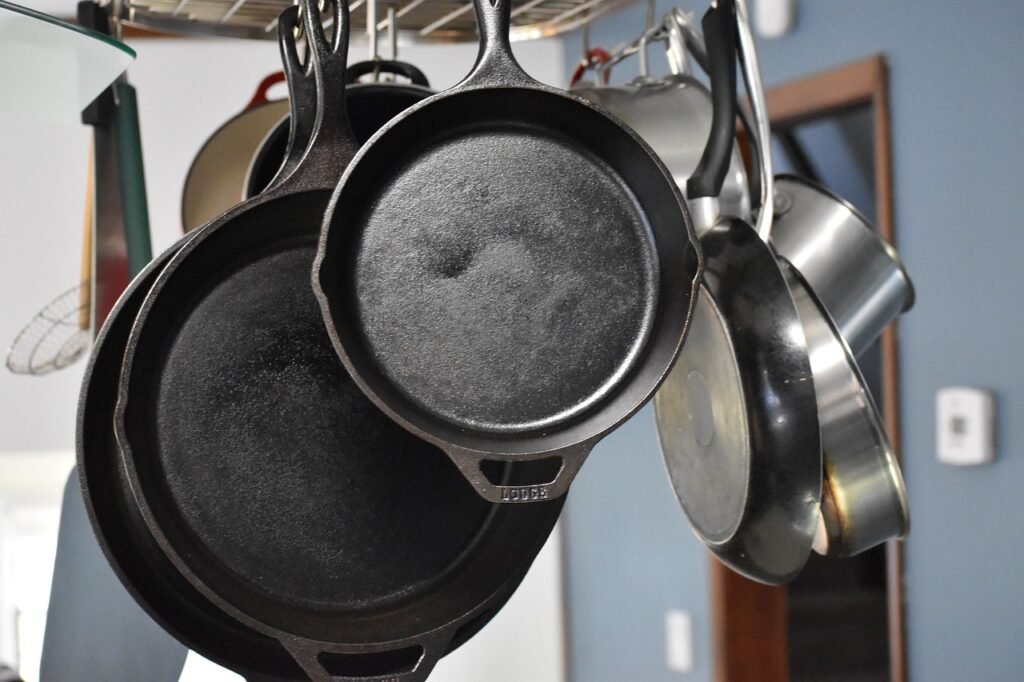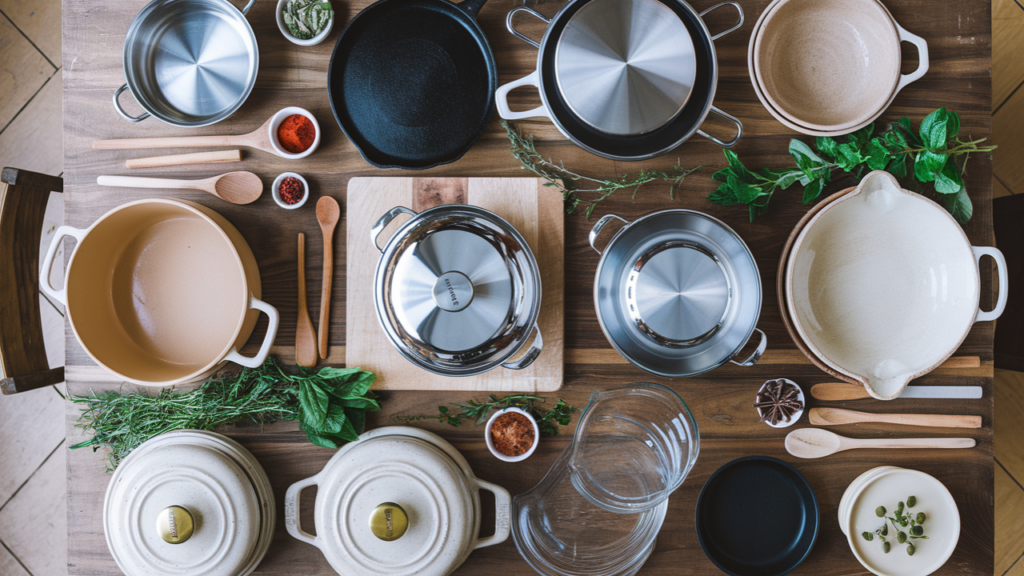When it comes to preparing meals for your family, choosing non-toxic cookware is just as important as selecting fresh, organic ingredients. Many conventional cookware options are made with materials that can leach harmful chemicals into your food, especially when subjected to high heat. Fortunately, there are several safe and healthy alternatives available. Here, we’ll explore the best non-toxic cookware options to make your kitchen a healthier place.
1. Ceramic Cookware
Picture this: a sleek, naturally non-stick pan that’s as beautiful as it is functional. Ceramic cookware is a popular non-toxic option, offering a naturally non-stick surface without the need for harmful coatings like Teflon. Fully ceramic cookware is free of heavy metals, cadmium, and lead, ensuring your food remains uncontaminated.
- Pros:
- Non-stick and easy to clean.
- Free from PFAS, PFOA, and other harmful chemicals.
- Suitable for high-heat cooking.
- Cons:
- Can be fragile if dropped.
- May not be compatible with induction stovetops.
Recommendation: Look for 100% ceramic cookware or trusted ceramic-coated brands certified free of harmful substances.
2. Stainless Steel Cookware
Picture this: a shiny, sturdy pot that lasts for years and cooks your food evenly. Stainless steel is durable, versatile, and non-reactive, making it a reliable choice for any kitchen. High-quality stainless steel cookware is free of coatings and won’t leach chemicals into your food.
- Pros:
- Long-lasting and scratch-resistant.
- Handles high heat without releasing toxins.
- Affordable and widely available.
- Cons:
- Can stick without proper use of oil or seasoning.
- May leach small amounts of nickel or chromium into food if damaged.
Recommendation: Opt for high-quality 18/10 stainless steel cookware to minimize any risk of leaching.

3. Cast Iron Cookware
Picture this: a classic black skillet sizzling with your favorite dishes, built to last a lifetime. Cast iron has been a kitchen staple for centuries. It’s naturally non-toxic and provides the added benefit of releasing small amounts of iron into your food, which can be beneficial for those with iron deficiencies.
- Pros:
- Extremely durable and long-lasting.
- Naturally non-stick when properly seasoned.
- Excellent heat retention and distribution.
- Cons:
- Requires maintenance to prevent rusting.
- Heavy and can be challenging to handle.
Recommendation: Choose uncoated cast iron or enamel-coated options for added convenience without compromising safety.
4. Glass Cookware
Picture this: a clear, elegant dish that transitions seamlessly from oven to table. Glass cookware is an excellent option for baking and storing food. It’s non-toxic, non-reactive, and doesn’t leach chemicals into your meals.
- Pros:
- Transparent, making it easy to monitor cooking progress.
- 100% free of harmful chemicals.
- Multipurpose—can go from oven to table.
- Cons:
- Fragile and prone to breakage.
- Not suitable for stovetop use.
Recommendation: Invest in high-quality borosilicate glass cookware for maximum durability.
5. Carbon Steel Cookware
Picture this: a lightweight yet sturdy pan that’s perfect for high-heat cooking. Similar to cast iron, carbon steel is another durable and safe cookware option. It’s lightweight compared to cast iron but offers similar cooking benefits.
- Pros:
- Naturally non-stick when seasoned.
- Versatile for stovetop, oven, and grill use.
- Heats up quickly and evenly.
- Cons:
- Requires regular seasoning to maintain performance.
- Can rust if not properly cared for.
Recommendation: Choose pre-seasoned carbon steel pans for ease of use and maintenance.
6. Stoneware Cookware
Picture this: a beautifully crafted dish that bakes your favorite casseroles to perfection. Stoneware is another non-toxic option, perfect for baking and roasting. Made from natural materials, it’s free of harmful chemicals and provides even cooking.
- Pros:
- No harmful coatings or chemicals.
- Retains heat well for consistent cooking.
- Adds a rustic touch to your kitchen.
- Cons:
- Can crack under extreme temperature changes.
- Heavy and requires gentle handling.
Recommendation: Ensure your stoneware is free from lead and other contaminants by purchasing from reputable brands.
Final Thoughts
Transitioning to non-toxic cookware is a worthwhile investment in your health and well-being. Whether you prefer the durability of stainless steel, the heritage of cast iron, or the modern appeal of ceramic, there’s a safe option for every cooking style. Remember to research brands thoroughly and prioritize certifications and transparency to ensure your cookware is genuinely non-toxic. Safe cooking leads to safe eating, so equip your kitchen with cookware that supports a healthy lifestyle.

